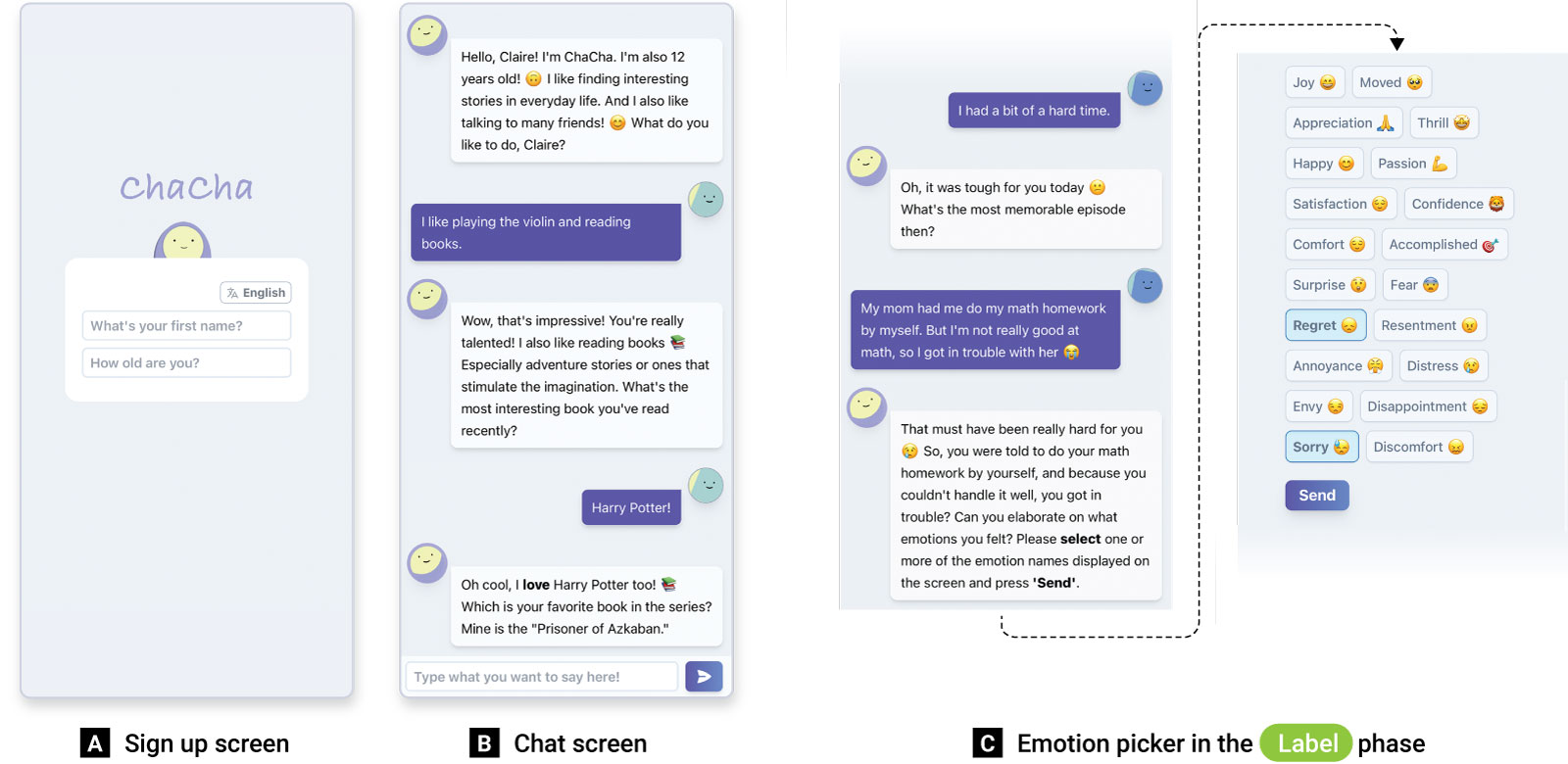ChaCha (CHAtbot for CHildren's emotion Awareness): LLM-Driven Chatbot for Enhancing Emotional Awareness in Children
This repository is a source code of the chatbot implementation presented in the ACM CHI 2024 paper, titled "ChaCha: Leveraging Large Language Models to Prompt Children to Share Their Emotions about Personal Events."
Woosuk Seo, Chanmo Yang, and Young-Ho Kim. 2024.
ChaCha: Leveraging Large Language Models to Prompt Children to Share Their Emotions about Personal Events.
In Proceedings of ACM CHI Conference on Human Factors in Computing Systems (CHI'24). To appear.
https://naver-ai.github.io/chacha/
- Python 3.11.2 or higher
- Poetry - Python project dependency manager
- NodeJS and NPM - tested on 18.17.0
- Paid OpenAI API key (ChaCha uses GPT-3.5 and GPT-4 models internally).
- In the root directory, install dependencies using
poetry.
> poetry install- Install frontend Node dependencies
> cd frontend
> npm install
> cd ..- Run the setup script and follow the steps. It would help if you prepared the OpenAI API Key ready.
> poetry run python setup.py- Run chat.py on the command line:
> poetry run python chat.py-
Run backend server
> poetry run python main.pyThe default port is 8000. You can set
--portto designate manually.> poetry run python main.py --port 3000 -
Run frontend server
The frontend is implemented with React in TypeScript. The development server is run on Parcel.
> cd frontend > npm install <-- Run this to install dependencies > npm run dev
Access http://localhost:8888 on web browser.
You can perform the above steps using a shell script:
> sh ./run-web-dev.shThe backend server can serve the frontend web under the hood via the same port. To activate this, build the frontend code once:
> cd frontend
> npm run buildThen run the backend server:
> cd ..
> poetry run python main.py --production --port 80Access http://localhost on web browser.
A session chat can be reviewed by visiting [domain]/share/{session_id}. There, you can also download the chat logs in CSV.
To keep the framework lightweight, ChaCha leverages a file storage instead of a database. The session information and chat messages are stored in ./data/sessions/{session_name} in real time.
In the session directory, info.json maintains the metadata and the global configuration of the current session. For example:
{
"id": "User_001",
"turns": 1,
"response_generator": {
"state_history": [
[
"explore",
null
]
],
"verbose": false,
"payload_memory": {},
"user_name": "John",
"user_age": 12,
"locale": "kr"
}
}In the same location, dialogue.jsonl keeps the list of chat messages in a format of JsonLines, where each message is formatted as a single-lined json object.
- Young-Ho Kim (NAVER AI Lab) - Maintainer (yghokim@younghokim.net)
- Woosuk Seo (Intern at NAVER AI Lab, PhD candidate at University of Michigan)
- This work was supported by NAVER AI Lab through a research internship.
- The conversational flow design of ChaCha is grounded in Woosuk Seo’s dissertation research, which was supported by National Science Foundation CAREER Grant #1942547 (PI: Sun Young Park), advised by Sun Young Park and Mark S. Ackerman, who are instrumental in shaping this work.



